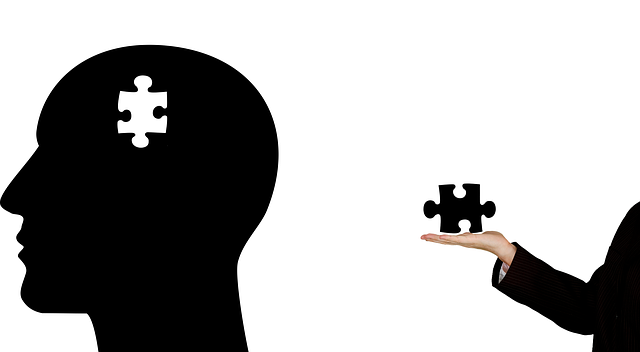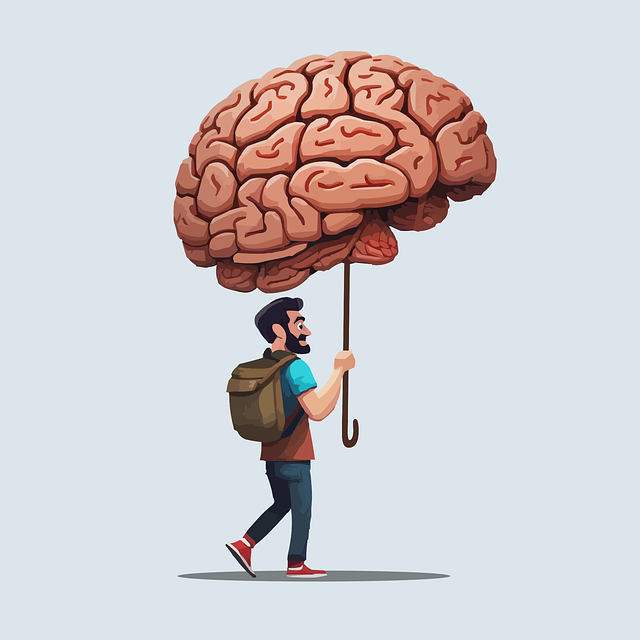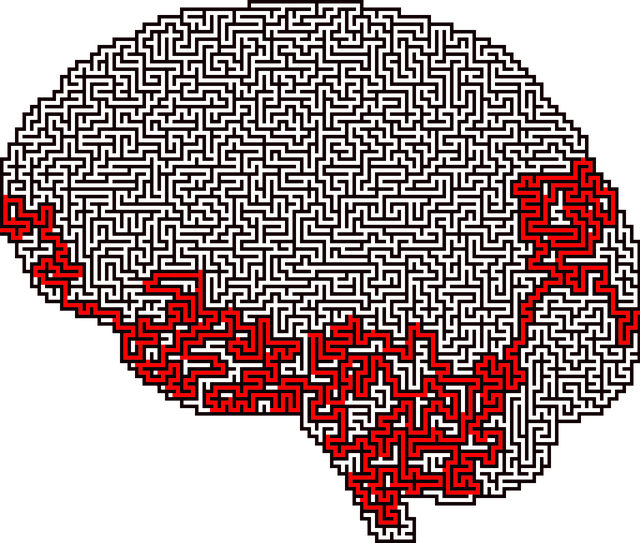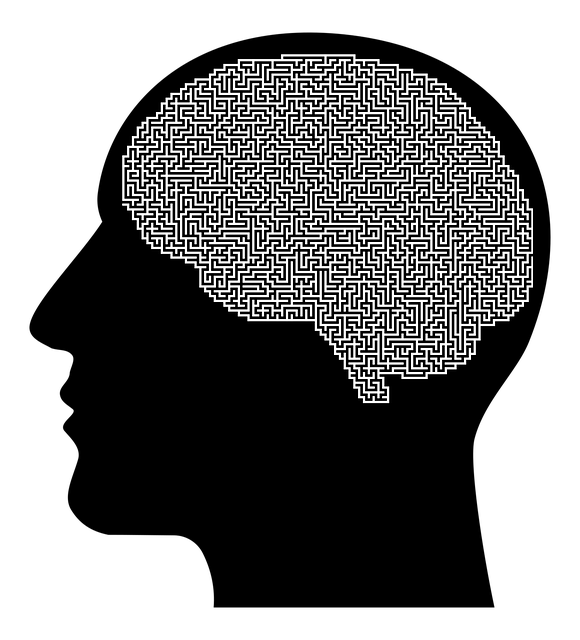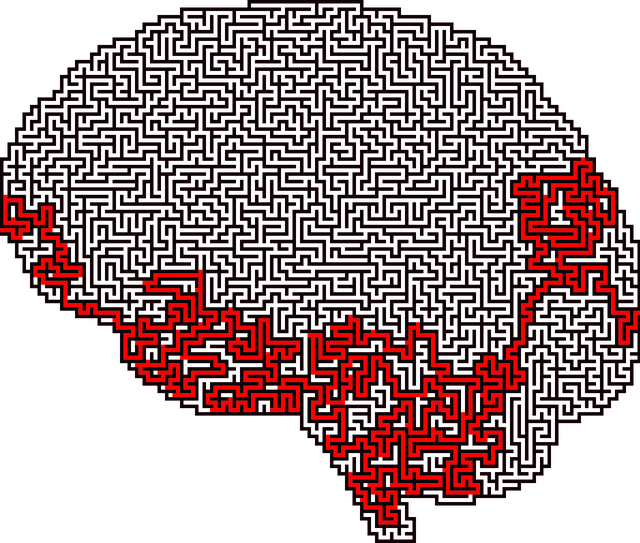Assessing and addressing mental health in young children with neuro disorders requires a multifaceted approach. Early identification through clinical interviews, standardized tools, and observation is vital for timely intervention. Healthcare providers integrate data from various sources to tailor therapeutic interventions, such as art, music, and play therapy, focusing on emotional expression and regulation. Parent/caregiver education empowers them to recognize distress and implement mood management strategies. Evaluating program success through metrics like therapeutic progress and symptom reduction is essential. Active parental involvement significantly enhances outcomes by providing a holistic support system aligned with family values. Future programs leverage technology, like virtual reality therapy, and evidence-based self-care practices to promote mental wellness in these children, shaping healthier adults.
Mental wellness programs play a crucial role in supporting young children with neuro disorders. This article explores comprehensive evaluation methods for such programs, focusing on assessing mental health needs, therapeutic interventions, and measurement of progress. We delve into effective metrics, highlighting the vital role of parent/caregiver involvement. Additionally, we preview future directions, including innovative therapies tailored to this population. By understanding these aspects, stakeholders can enhance services and improve outcomes for young children with neuro disorders through targeted therapy for young children neuro disorders.
- Assessing Mental Health Needs in Young Children with Neuro Disorders
- Therapeutic Interventions: An Overview for Effective Treatment
- Evaluation Metrics: Measuring Progress and Success Rates
- Parent/Caregiver Involvement: Its Role in Program Effectiveness
- Future Directions: Innovations in Mental Wellness Programs for Children
Assessing Mental Health Needs in Young Children with Neuro Disorders

Assessing mental health needs in young children with neuro disorders is a multifaceted process that requires specialized knowledge and tools. Early identification is crucial as it enables timely intervention, which can significantly impact long-term outcomes. Mental health professionals use various evaluation methods to understand each child’s unique challenges. These may include comprehensive clinical interviews, standardized assessment tools tailored for pediatric neurologic conditions, and observation during play or therapy sessions. By integrating data from multiple sources, healthcare providers gain insights into the child’s emotional, behavioral, and social functioning.
Special emphasis should be placed on burnout prevention strategies for healthcare providers involved in these assessments to ensure consistent and compassionate care. Mental health education programs designed specifically for parents and caregivers can also empower them to recognize signs of distress in their children and facilitate effective mood management strategies. Such proactive approaches contribute to the overall well-being of both the child and the support network surrounding them.
Therapeutic Interventions: An Overview for Effective Treatment

Therapeutic interventions play a pivotal role in mental wellness programs, offering a range of effective treatments tailored to individual needs. For young children presenting with neuro disorders, therapy often involves playful and engaging approaches that cater to their developmental stage. Techniques such as art therapy, music therapy, and play therapy encourage emotional expression and provide a safe space for children to explore and process complex feelings. These methods foster emotional regulation skills, enabling them to manage stress and anxiety more effectively.
Additionally, self-care practices are integrated into therapeutic interventions to promote holistic mental wellness. Teaching coping strategies, mindfulness exercises, and crisis intervention guidance empowers individuals—from young children to adults—to navigate challenging situations with resilience. By combining these therapeutic approaches, mental wellness programs create a supportive environment that facilitates personal growth, enhances emotional intelligence, and ultimately contributes to improved overall well-being.
Evaluation Metrics: Measuring Progress and Success Rates

Evaluating the effectiveness of mental wellness programs is crucial for understanding their impact on participants’ lives, especially when focusing on young children with neuro disorders. Metrics such as progress in therapeutic sessions, improvement in behavioral scores, and reduction in symptoms are key indicators of success. For instance, therapy for young children with neuro disorders might measure the child’s ability to communicate feelings, socialize with peers, and complete age-appropriate tasks before and after the program. Success rates can be assessed by tracking the number of participants meeting predefined treatment goals.
Incorporating public awareness campaigns and promoting mindfulness meditation as part of these programs has shown potential benefits. Mental health awareness initiatives educate communities, reduce stigma, and encourage early intervention—all vital components for a holistic mental wellness strategy. These evaluation metrics not only help in refining existing programs but also guide the development of new interventions tailored to the unique needs of young children with neuro disorders.
Parent/Caregiver Involvement: Its Role in Program Effectiveness

Parent/Caregiver involvement plays a pivotal role in evaluating and enhancing the effectiveness of mental wellness programs designed for young children with neuro disorders. When parents are actively engaged in their child’s therapy, it fosters a holistic approach to treatment. This involvement can significantly impact the success of interventions aimed at improving emotional well-being and cognitive development. Research suggests that parental participation in therapy sessions, home practices, and regular communication with mental health professionals leads to better outcomes for children.
Incorporating parents into the therapeutic process provides a valuable support system both inside and outside the clinical setting. It enables them to understand their child’s challenges and strengths, encouraging consistent application of strategies learned during therapy. This collaboration also ensures that the treatment plan aligns with the family’s values and beliefs, making it more effective and sustainable in addressing the unique needs of children with neuro disorders. Furthermore, parental involvement can extend the benefits of mental health services through ongoing advocacy for appropriate Mental Health Policy Analysis and Advocacy, ensuring accessible and quality Trauma Support Services and Crisis Intervention Guidance for their children.
Future Directions: Innovations in Mental Wellness Programs for Children

The future of mental wellness programs for children lies in innovative approaches that integrate cutting-edge technology and evidence-based practices. With advancements in artificial intelligence, virtual reality therapy could become a game-changer, offering immersive experiences tailored to each child’s unique needs. This technology can create safe spaces for young minds to explore and practice emotional healing processes, especially beneficial for those with neuro disorders who may struggle in traditional settings.
Additionally, there is a growing emphasis on self-care practices and emotional well-being promotion techniques designed specifically for children. These programs focus on teaching kids mindfulness, stress management skills, and healthy coping mechanisms from an early age. By empowering them with these tools, we can foster resilience and improve overall mental health outcomes. Such initiatives have the potential to revolutionize how we support young individuals, ensuring they develop into emotionally balanced adults.
In evaluating mental wellness programs, a multifaceted approach is essential, encompassing needs assessment, evidence-based interventions, and robust evaluation metrics. The inclusion of parent/caregiver involvement proves vital for program success. Moving forward, innovations in therapy for young children with neuro disorders will continue to shape effective mental health support, ensuring better outcomes and enhanced quality of life for these young minds.


